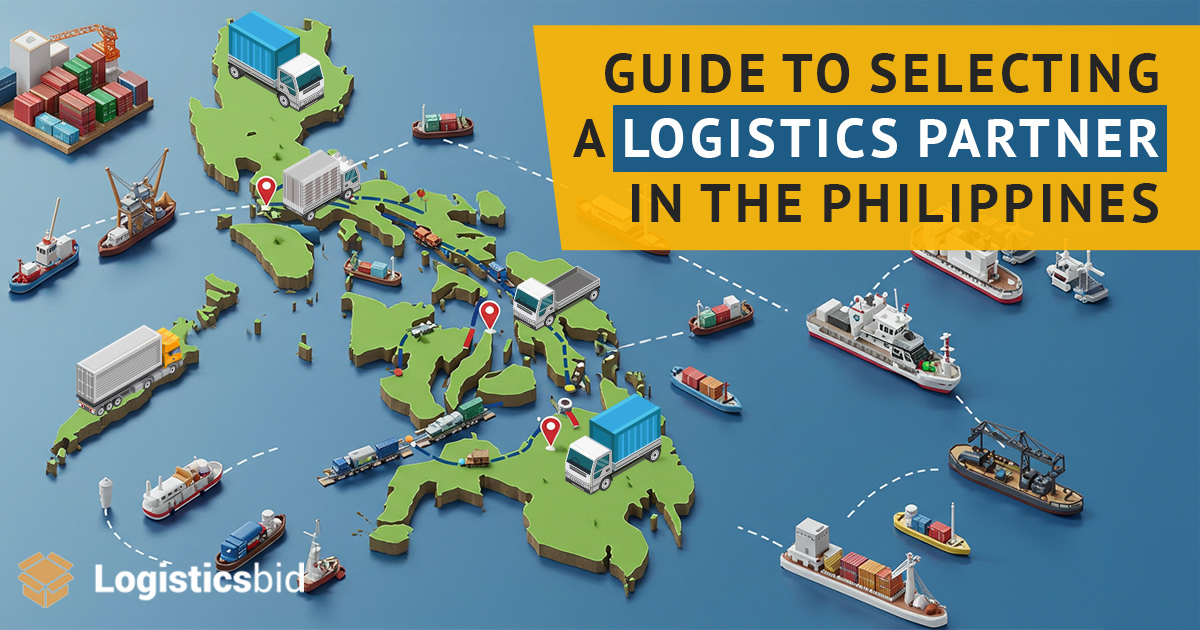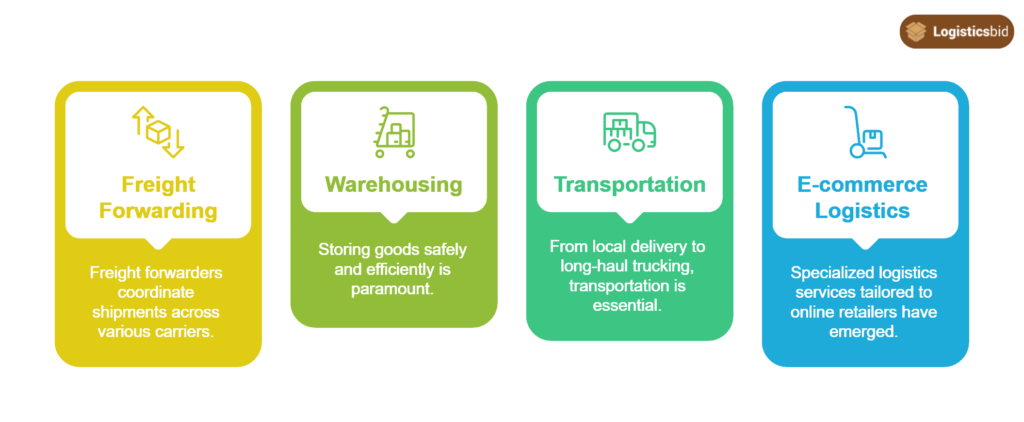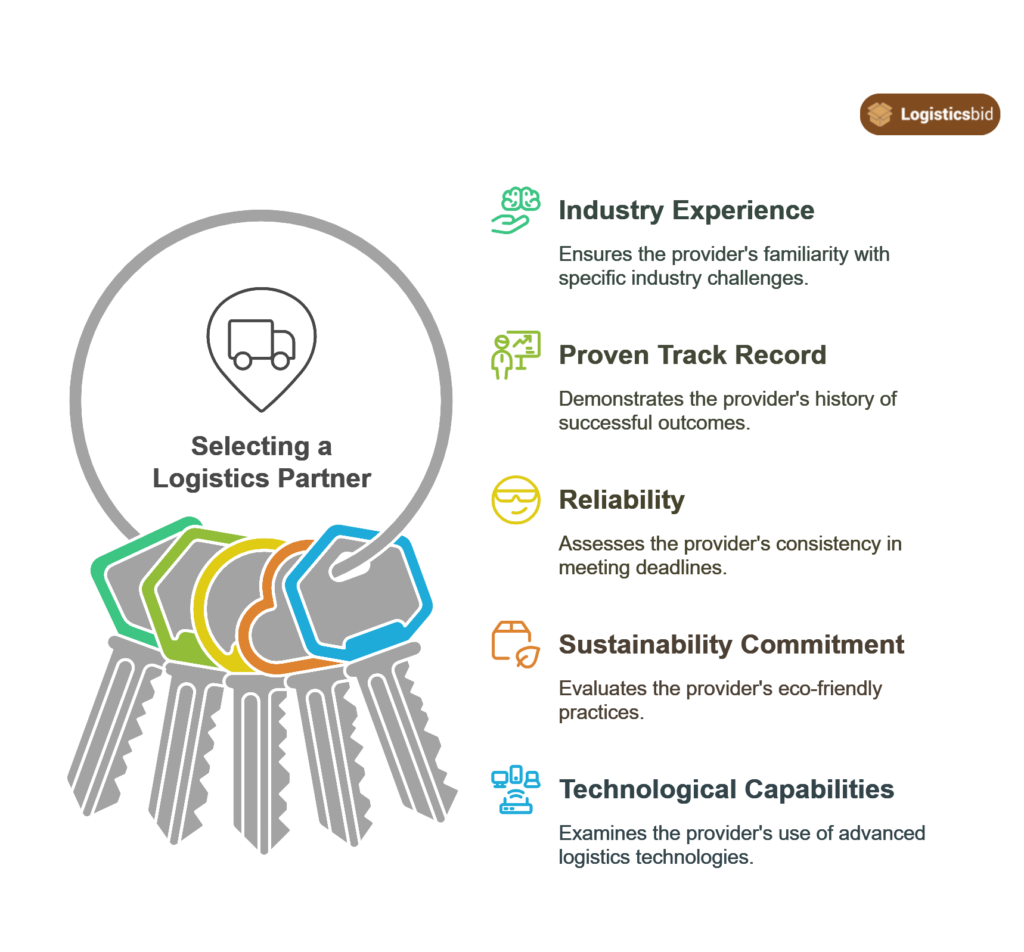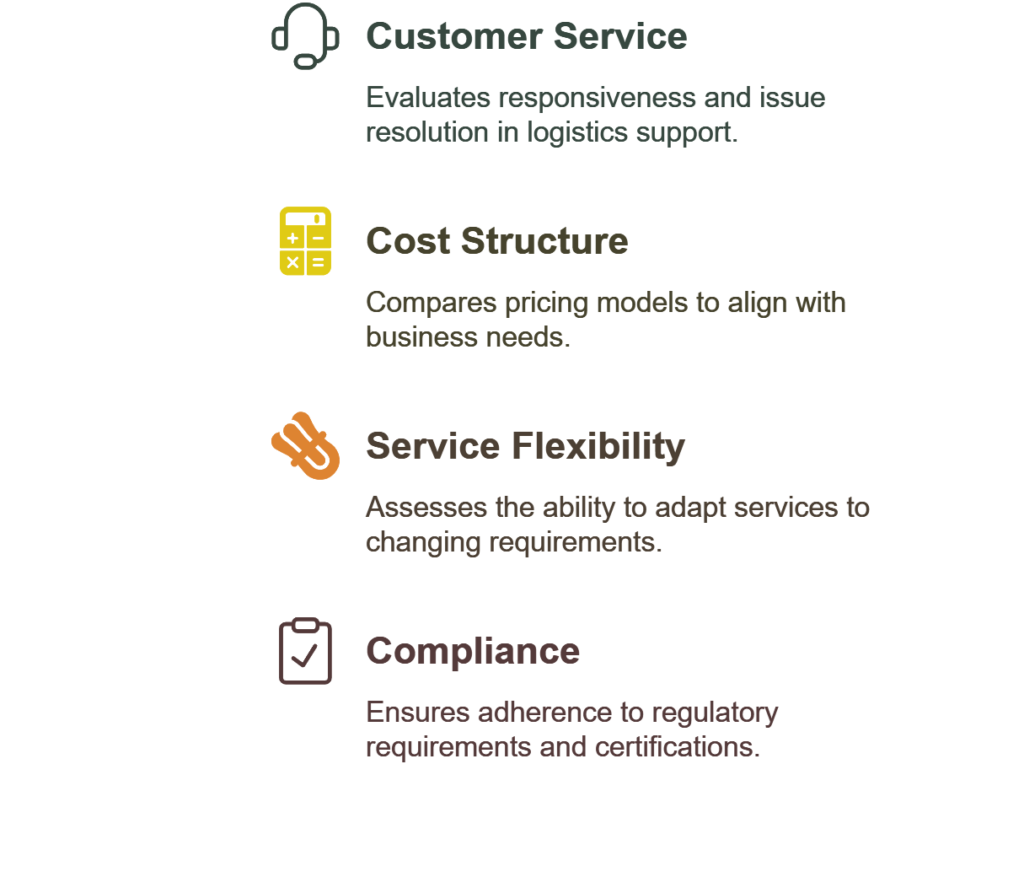
Choosing the right logistics partner is crucial for businesses looking to streamline their supply chain operations, optimize costs, and enhance customer satisfaction. With a growing logistics sector in the Philippines, which is projected to reach a market size of approximately $17.3 billion by 2024 according to Statista, selecting a provider that aligns with your operational needs can significantly impact your business success. This guide aims to outline the key considerations and steps in choosing the most suitable logistics partner from various providers across the archipelago.
What Types of Logistics Services Are Available in the Philippines?

The diversity of logistics services can meet various industry demands. The prevalent types include:
Freight Forwarding Services
Freight forwarders coordinate shipments across various carriers. Companies like Asian International Shipping and Air Freight offer comprehensive solutions for businesses needing international shipping.
Warehousing Services
Storing goods safely and efficiently is paramount. Look for providers with facilities in strategic locations. For example, the Ayala Group offers various warehousing options throughout the Philippines, enabling quick distribution.
Transportation Services
From local delivery to long-haul trucking, transportation is a central component of logistics. Companies like GrabExpress provide point-to-point delivery services, catering to e-commerce businesses.
E-commerce Logistics
With the booming e-commerce market, specialized logistics services tailored to online retailers have emerged. Ninja Van is noteworthy in providing fast, reliable logistics solutions specifically for e-commerce platforms.
Understanding the Different Types of Logistics Providers
Before diving into the selection process, it’s essential to understand the various types of logistics providers operating in the Philippines. These include:
- Freight Forwarders: Specialize in arranging transportation services for goods.
- Courier Services: Focus on fast and reliable delivery of packages and documents.
- Full-Service Providers: Offer a comprehensive range of logistics services, including warehousing, freight forwarding, and courier services.
- Warehousing Specialists: Concentrate on storage and handling of goods in warehouses.
- Last-Mile Delivery Services: Focus on the final leg of delivery, often within urban areas.
- Third-Party Logistics (3PL) Providers: Offer a range of logistics services, including warehousing, freight forwarding, and distribution.
What Are the Key Factors to Consider When Selecting a Logistics Partner?
When choosing a logistics partner, several factors come into play which can affect your decision.

 |
Industry Experience and Expertise
Ensure the provider has extensive experience in your specific industry.
Proven Track Record of Success
Review the provider’s success stories and case studies to gauge their effectiveness.
Reliability and On-Time Performance
Assess the provider’s commitment to meeting deadlines and maintaining high levels of service quality.
Commitment to Sustainability
Consider providers that prioritize environmentally friendly practices and sustainable logistics solutions.
Geographic Coverage and Network
Evaluate the provider’s reach and network, ensuring they can handle regional or international shipments efficiently.
Technological Capabilities
Assess the provider’s use of technology, including e-commerce platforms, tracking systems, and data analytics tools.
Customer Service and Support
Evaluate the level of support provided to customers, including responsiveness, communication, and issue resolution processes.
Cost and Pricing Structure
Compare pricing models and costs associated with different services to ensure they align with your business needs.
Flexibility in Service Offerings
Consider providers that can adapt their services to meet changing business requirements.
Compliance and Certifications
Ensure the provider meets relevant regulatory requirements, such as customs clearance, phytosanitary certificates, and other industry-specific certifications.
How Does One Evaluate the Quality of a Potential Logistics Partner?
Once you narrow down your options, the next step is evaluation, focusing on both quantitative and qualitative aspects.
Performance Metrics
Consider key performance indicators (KPIs) such as on-time delivery rates, damage/loss rates, and order accuracy. According to a 2021 survey by the World Bank, delivery performance is a significant factor in customer satisfaction, emphasizing the importance of answering this aspect accurately.
Certifications and Compliance
Check for certifications that ensure compliance with local and international standards. For example, ISO 9001 accreditation showcases a commitment to quality management, enhancing trust in the services provided.
Client Testimonials and Case Studies
Seek feedback from other businesses that have partnered with the logistics provider. Testimonials can provide insights into reliability and customer service quality. Engaging with case studies can reveal practical applications and potential outcomes.
Recommended Logistics Partners
Choosing the right logistics partner can be overwhelming, but here’s a list of recommended logistics providers to consider:
| Logistics Provider | Services Offered | Notable Features |
|---|---|---|
| Transportify | Transportation, Last-Mile Delivery | On-demand, flexible services, mobile app |
| GrabExpress | Transportation, Last-Mile Delivery | Fast and user-friendly delivery service |
| Ninja Van | E-commerce Logistics, Last-Mile Delivery | Tailored solutions for online retailers |
| GoGo Xpress | Courier, Fulfillment Services | Emphasis on sustainability |
What Are the Common Pitfalls in Choosing a Logistics Partner and How to Avoid Them?
Avoiding common mistakes can save time and resources. Here are pitfalls to watch out for:
Underestimating Hidden Costs
Always clarify pricing structures to avoid unexpected charges. Costs such as fuel surcharges or customs fees can impact your overall logistics expenses.
Failing to Align Goals and Values
Select a logistics partner that shares your business goals and values. For instance, sustainability has become an important aspect for many consumers, making it sensible to partner with providers who focus on eco-friendly practices like GoGo Xpress.
Inadequate Communication
Clear, consistent communication is vital for successful logistics. Establish communication protocols before official partnership. Poor communication can lead to logistical errors and customer dissatisfaction.
Key Takeaways
– Evaluate potential logistics partners based on service offerings, financial stability, and technological capabilities.
– Understand the types of logistics services available, including freight forwarding and e-commerce logistics.
– Assess performance metrics, certifications, and client testimonials to gauge quality.
– Avoid common pitfalls by clarifying costs, aligning business values, and ensuring effective communication protocols are in place.
Conclusion: Next Steps for Selecting Your Logistics Partner
In conclusion, selecting the right logistics partner in the Philippines requires comprehensive assessment and thorough research. Examine potential providers based on their service offerings and consider their financial stability, technology use, and operational processes. Engage in discussions to ensure alignment in goals and maintain an open line of communication. Armed with this knowledge, you can confidently navigate the competitive logistics landscape and choose a partner that will support your business growth.
SEE ALSO:
